Our guide to Egyptian culture and customs helps you navigate one of the world’s most underrated travel destinations. Egypt balances delicately on the crux of ancient and modern life. Visitors may be lured by its fascinating sights and history, but there’s much to discover about modern Egyptian culture. The country is a melting pot, ranging from the Pharaonic culture long ago to the Islamic customs of today.
Although you won’t be expected to get everything right, brushing up on Egyptian cultural etiquette will enhance your experience. To help, we’ve created a cultural guide to Egypt that explains the ins and outs of this complex country. From dining manners to tipping, here’s a rundown on culture in the land of wonders.
Religion in Egyptian Culture
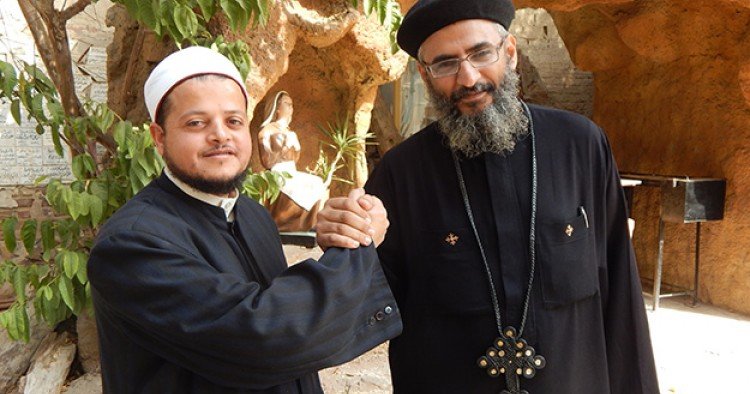
As a Muslim-majority country, Islam is practiced by about 90% of Egyptians. Because of this, it also plays a large role in every aspect of society, setting the tone for other cultural practices including honor, family values, and marriage. Traditionally, Muslims are obligated to pray five times a day, with many heading to their local mosque to partake. The times are marked by a call to prayer which echoes throughout every city and town in Egypt. This creates a powerful ambience, making it one of the most sacred and fascinating experiences in Egypt. Despite this, Muslims live side by side with Christians in peace.
Ramadan is a particularly captivating time to visit Egypt. In Islam, Friday is the designated holy day. As the day of the main congregational prayer, most shops remain closed. The regular work week begins on Sunday and ends on Thursday, so make sure to plan ahead for Friday.
Egyptian Clothing Customs
Egyptian traditional attire reflects the country’s rich history, diverse cultural influences, and regional variations. The clothing worn by Egyptians serves both functional and cultural purposes and is an important aspect of their identity.
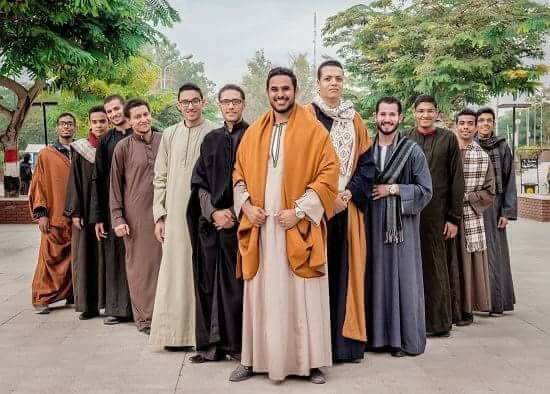
Regional Diversity
Egypt’s traditional clothing varies across different regions of the country, influenced by factors such as climate, lifestyle, and local traditions. In the Nile Delta and urban areas, lighter and more modern clothing is common, while in rural Upper Egypt and desert regions, traditional attire remains prevalent.
Women’s Clothing
Traditional Egyptian women’s clothing includes the “abaya” or “abaya,” a long, loose-fitting robe that covers the body from neck to ankle. In rural areas, women may wear colorful embroidered dresses and headscarves, while urban women often opt for more modern styles. The “hijab” or headscarf is commonly worn by Muslim women to cover their hair.
Men’s Clothing
Traditional Egyptian men’s clothing includes the “galabeya” or “jalabiya,” a loose-fitting, ankle-length garment. The galabeya is typically made from cotton or linen, making it suitable for the hot climate. It is often worn with a “shemagh” or “keffiyeh,” a traditional headscarf that provides protection from the sun and sand.
Bedouin Attire
The Bedouin communities in Egypt’s desert regions have their own distinctive clothing traditions. Bedouin men typically wear long, flowing robes called “dishdashas” or “thobes,” along with head coverings such as the “ghutra” or “aghal.” Bedouin women wear brightly colored dresses adorned with intricate embroidery and silver jewelry.
Nubian Attire
Nubian communities in southern Egypt have their own unique traditional clothing. Nubian men often wear long white robes called “jalabiyas” and turbans, while Nubian women wear vibrant, handwoven dresses with intricate patterns and headscarves.
Modern Influence
In urban areas such as Cairo and Alexandria, traditional attire is often blended with modern fashion. Many Egyptians wear Western-style clothing for everyday activities, while traditional garments are reserved for special occasions, religious events, and cultural festivals.
Traditional attire in Egypt reflects the country’s cultural diversity, with each region and community showcasing its unique clothing styles and customs. While modern influences have made their mark, traditional clothing remains an integral part of Egyptian cultural heritage and identity.
Egyptian Dining Culture
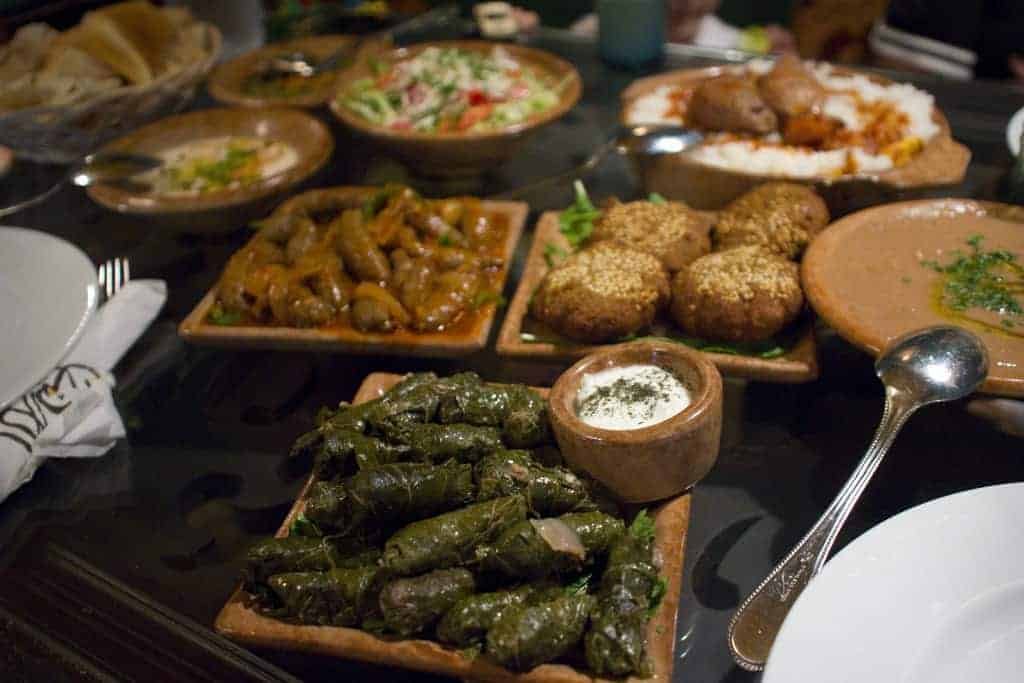
Food is a huge part of Egyptian culture and daily life. With a focus on fresh, wholesome fare, the cuisine depends on legumes, carbs, and oil. Arguably the heart and soul of daily Egyptian food is the freshly baked bread loaves found on every street corner. Bread is the center of every meal and is a cherished part of the food culture.
Another beloved traditional food is ful, a slow-cooked fava bean stew seasoned with salt, lemon, cumin, and oil, typically eaten for breakfast alongside falafel, fried eggplant, and bread. Breakfast is a quintessential part of Egyptian life, with ful stalls filled to the brim from early morning to mid-afternoon.
Discover the top 10 traditional Egyptian dishes – TravMe
Eating at an Egyptian Home
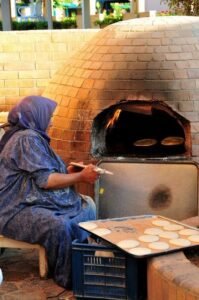
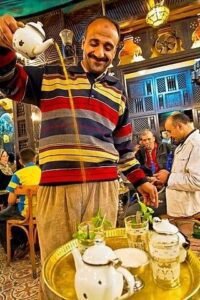
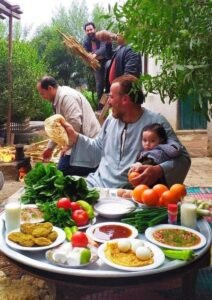

If you are invited to an Egyptian’s house for a meal, there are a few pieces of etiquette you should know. When you arrive, wait for the host to let you know where to sit, and don’t pass or eat anything with your left hand (the right hand is reserved for everyday tasks, while the left is for ‘unclean’ tasks). Show appreciation for your meal and don’t be afraid to take a second helping – there’s nothing an Egyptian loves more than a guest who feels welcome!
When visiting a home, dress well and in a conservative manner. Appearances mean a lot to Egyptians, so making an effort to dress well if you’re a guest is a symbol of respect. Also, remember to remove your shoes when entering someone’s house.
Dining also differs depending on where you are in Egypt. In rural, traditional areas, people eat from a large, shared dish. If you get the chance to dine in an Egyptian village, don’t be afraid to dig in!
Festivals and Celebrations in Egypt
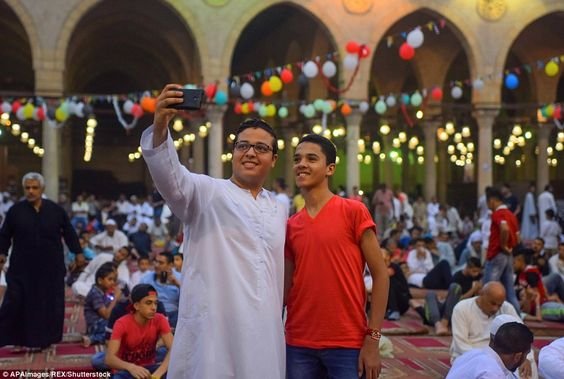
Egypt is home to a vibrant array of festivals that reflect its rich cultural heritage. The Egyptian Festivals Calendar is packed with events that celebrate religious, historical, and cultural milestones.
– Eid al-Fitr: This festival marks the end of Ramadan, the Islamic holy month of fasting. Celebrations include special prayers, feasting, and giving to the poor. Families gather to share meals and exchange gifts, and children often receive new clothes and money.
– Eid al-Adha: Known as the Festival of Sacrifice, it commemorates the willingness of Ibrahim (Abraham) to sacrifice his son as an act of obedience to God. It involves special prayers, the sacrifice of an animal, and the distribution of meat to the needy.
– Sham El-Nessim: Celebrated on the Monday following Orthodox Easter, this ancient spring festival dates back to the Pharaonic era. Egyptians celebrate by spending the day outdoors, enjoying picnics with traditional foods like salted fish, lettuce, and green onions.
– Moulid an-Nabi: This festival commemorates the birth of the Prophet Muhammad. It is marked by colorful street processions, chanting, and the distribution of sweets, particularly a special candy known as “halawet el moulid.“
Egyptian Culture of Time
Egyptians have a very relaxed attitude towards time and punctuality. While this doesn’t always ring true for tourism and business, don’t be alarmed if things take a little longer than you expected. Those who adopt a “go with the flow” attitude are far more likely to enjoy a trip to Egypt.
Relationships in Egypt
If visiting Egypt with a partner, it’s important to note that public displays of affection are not common in Egyptian culture. Hugging, kissing, and even holding hands are not appropriate in public areas. Following these guidelines shows respect to the locals.
Understanding Egyptian Culture
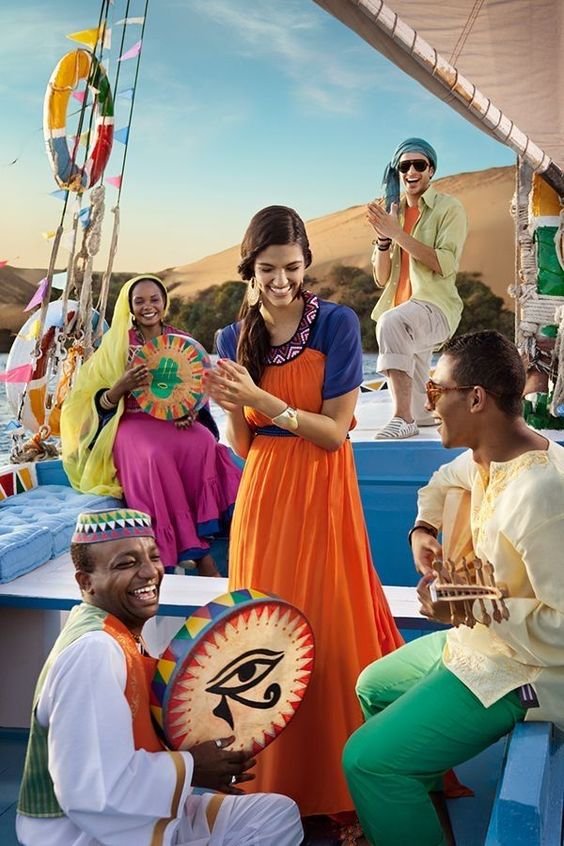
Delve into Egyptian culture as we offer you a comprehensive understanding of the customs of Egypt, along with its rich and vibrant heritage, encompassing traditions, values, and distinctive customs and practices.
Egyptians place great importance on hospitality, warmly welcoming guests into their homes. Family is at the heart of Egyptian society, with strong bonds and a strong sense of community. It’s essential to acknowledge that Egyptian culture is continuously evolving, influenced by historical events, regional dynamics, and global interactions.
Gaining an understanding of Egyptian culture can provide valuable insights into the intricate and diverse society of the country.
Discover: Best Family holidays in Egypt 2024/ 2025
Key Aspects of Egyptian Culture
Here are the most important points to begin learning about Egyptian culture and customs:
- Ethnic Diversity: Egypt is home to a diverse mix of ethnic groups, each with its own customs and traditions. Egyptians, Nubians, Bedouins, and various other ethnic communities coexist.
- Languages: Arabic is the official language of Egypt, but various regional dialects and languages are spoken throughout the country.
- Islamic Practices: Egypt is predominantly a Muslim country, and Islam is deeply ingrained in Egyptian culture, affecting daily life, values, and societal norms. This includes daily prayers, fasting during Ramadan, and adherence to Islamic dietary laws. The majority of Egyptians practice Sunni Islam.
- Greeting Etiquette: Greetings are an essential part of Egyptian culture. Handshakes are common between men, while men and women usually do not shake hands. Instead, they greet each other verbally with polite phrases.
- Traditional Clothing: Traditional Egyptian clothing, such as the “galabeya” for men and similarly styled dresses for women, is commonly worn. Traditional attire varies by region and ethnicity but remains an integral part of Egyptian culture and identity.
- Cuisine: Egyptian cuisine features dishes like kebabs, koshari, and a variety of stews. It reflects a fusion of Middle Eastern, Mediterranean, and African flavors.
- Hospitality: Egyptians are renowned for their warm hospitality. When guests visit, they are offered tea, meals, and often a place to stay. It is considered impolite to decline such offers.
- Respect for Elders: Respect for elders is a deeply ingrained custom. Younger individuals show deference to their seniors through words and actions.
- Arts and Crafts: Egypt has a rich tradition of arts and crafts, including intricate pottery, jewelry-making, calligraphy, and papyrus painting.
- Music and Dance: Traditional Egyptian music includes instruments like the oud and tabla. Folk dances, such as the “tanoura” dance, are an integral part of cultural celebrations.
- Celebration of Festivals: Egyptians celebrate various religious and cultural festivals, such as Eid al-Fitr, Eid al-Adha, and Coptic Christmas. These celebrations often involve special prayers, feasts, and gatherings with family and friends.
- Family and Community: Family is central to Egyptian society, and strong community bonds are essential for support and social cohesion.
- Gender Roles: Gender roles are traditionally defined, with men and women often occupying distinct social spheres. However, changes are occurring, particularly in urban areas.
- Ancient History and Heritage: Egypt’s rich ancient history, including the pyramids, temples, and hieroglyphics, has a significant influence on modern Egyptian culture and identity.
These customs are essential aspects of Egyptian culture and are readily visible in everyday life, reflecting the country’s rich cultural heritage and strong sense of community and tradition.
Egyptian culture and traditions offer a fascinating blend of ancient heritage and modern influences. From its vibrant festivals and delicious cuisine to its rich artistic traditions and warm hospitality, Egyptian culture is a treasure trove of experiences waiting to be explored. Whether you’re visiting the awe-inspiring pyramids, enjoying a performance at the Cairo Opera House, or partaking in the joyous celebrations of Eid al-Fitr, Egypt promises an unforgettable journey into one of the world’s most enduring and dynamic cultures. At TravMe, we are dedicated to helping you discover the magic of Egyptian culture in a way that is both enriching and enjoyable.
Contact Information:
– Phone: +201008833030
– Fax: +20233765560
– Email: info@travmetours.com
– Address: 5 Zohor St, Hadayek El Ahram, Elite Compound, Remaya Square, Giza, Egypt



Comment (0)